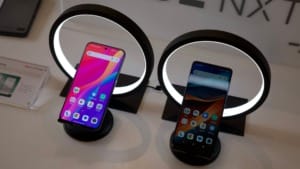Comcast’s new ‘ultra-low lag’ technology aims to transform internet speed
Comcast is rolling out ultra-low lag internet technology to improve video calls and gaming. Major cities will see upgrades, cutting latency by 78%.

If you use Comcast Xfinity Internet, you may soon notice a significant improvement in video calls and online gaming. Instead of increasing bandwidth, Comcast is rolling out a new upgrade designed to reduce the time it takes for data packets to travel across the Internet, reducing lag and making online experiences feel smoother.
The company has started deploying its “pioneering new, ultra-low lag connectivity experience” in major cities, including Atlanta, Chicago, Colorado Springs, Philadelphia, Rockville (Maryland), and San Francisco. This development could mean fewer FaceTime call delays, faster online game response times, and improved performance for virtual reality applications.
How the new L4S technology works
The upgrade is powered by a standard known as L4S (Low Latency, Low Loss, Scalable Throughput). This technology aims to significantly reduce latency, ensuring that real-time activities like video calls and gaming feel more natural and responsive.
L4S allows data packets to detect network congestion earlier, enabling devices to adjust their transmissions to prevent delays. While it doesn’t speed up data beyond the limits of physics, it removes unnecessary slowdowns caused by queuing and congestion, making internet usage feel faster.
Over the years, internet upgrades have primarily focused on increasing bandwidth, allowing more data to be sent simultaneously. However, Comcast’s new approach improves efficiency rather than just expanding capacity, which could be a game-changer for internet users.
Apple, Nvidia, and Valve among early adopters
Comcast has collaborated with major tech companies, including Apple, Nvidia, and Valve, during trials of the new technology. The upgrade will initially enhance services like FaceTime, Nvidia’s GeForce Now cloud gaming, and several Steam games. Meta’s mixed reality headsets are also set to benefit from the new low-latency improvements.
Apple has already built support for L4S into its devices since iOS 17 and macOS Sonoma, ensuring that users with compatible hardware will experience the benefits immediately. Comcast expects other content and application providers to adopt the open standard over time.
Comcast spokesperson Joel Shadle revealed that during testing, the company reduced latency by 78% under normal home usage conditions. Once fully deployed, this technology will be available to all Xfinity Internet customers, potentially revolutionising how people experience the Internet.
















